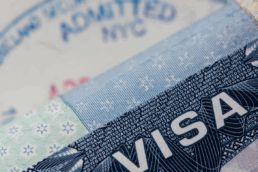Berardi Immigration Law has recently learned that certain ports of entry along the Canadian border are now refusing to process petitions for renewal L-1 applications that are presented by Canadians pursuant to the North American Free Trade Agreement (NAFTA). This new policy affects both individual and blanket L petitions.
Initial reports indicated that this was a problem only at Customs and Border Protection (CBP) locations near Calgary. However, it has since expanded throughout several ports of entry and preclearance locations including Toronto Pearson International Airport (preclearance), Winnipeg, Vancouver, Calgary, Montréal Pierre Elliott Trudeau International Airport (preclearance), Edmonton, Seattle, Pembina, Warroad, Pt. Roberts, Sumas, and more. Over the weekend, we have been informed that the Peace Bridge located in Buffalo, New York is now also enforcing this policy. This impacts all ports of entry under the Buffalo jurisdiction, including the Rainbow Bridge, Queenston/Lewiston Bridge, and Thousand Islands Bridge and all ports of entry on the northern New York/Canadian border. All L-1 renewal petitions for Canadians must now be submitted directly to USCIS for adjudication.
The ports of entry that are refusing to process these petitions are relying on a section of the regulations (8 CFR §214.2(l)(15)(i)), which state that petition extensions which include requests for extension of stay should be made by filing an I-129 petition with USCIS. However, when Canadian citizens submit an L-1 petition at a port of entry, it means they are seeking admission to the U.S. in conjunction with filing the petition, and therefore they are not seeking an “extension of stay.” As such, there does not appear to be a legal basis for this refusal process.
It is also important to note that different ports of entry are applying this policy differently. Some refuse to process any L-1 petition for anyone who was previously in the U.S. in L-1 status and who has not spent more than 365 says outside of the United States, including those who regularly commute to the U.S. in L-1 status; others will process petitions for readmission only for those who reside primarily in Canada and spend less than 50% of their time in the U.S.
The American Immigration Lawyers Association is currently following up with CBP on this issue and has highlighted the negative impact that this policy is having on U.S. companies, as well as their employees.
As many of our clients present their L-1 renewal applications directly to CBP, we will continue to constantly monitor this issue and provide updates to our clients. If you have a question on this new CBP policy, please do not hesitate to contact our office.
Ready to have Berardi on your side?
Whether you’re a business looking to hire or a professional hoping to relocate, immigration law can be complicated. But you don’t have to do it alone. Put our experience to work for you.



